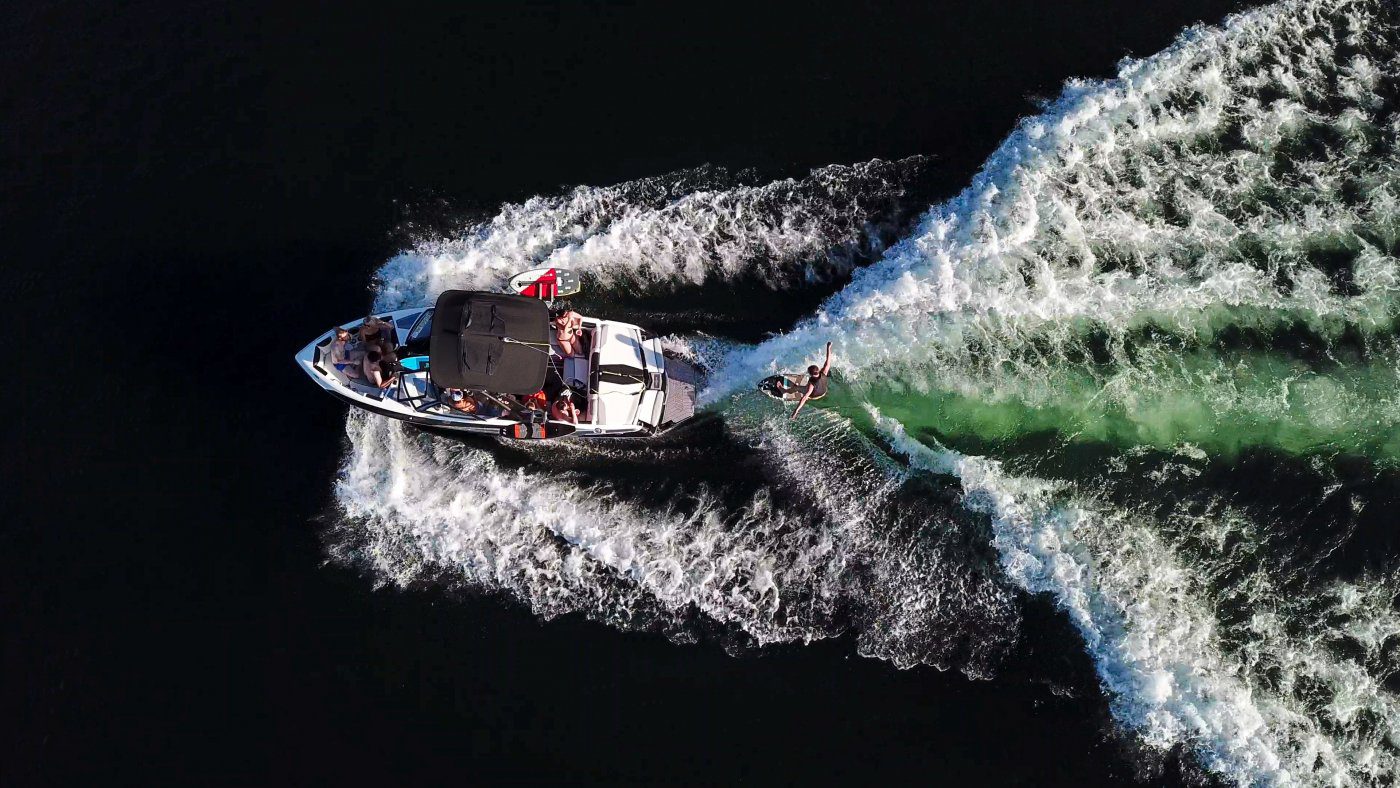All Three Wake-Related WCC Spring Hearing Questions Pass Overwhelmingly
Voters in the Wisconsin Conservation Congress Spring Hearings Voted In Favor of Enhanced-Wake Related Questions By A Margin of Over 3 to 1
By Michael Engleson, Wisconsin Lakes
Three citizen-submitted questions regarding wakeboats and the regulation of ballasted wakesports overwhelmingly passed the Wisconsin Conservation Congress Spring Hearings, according to information released by the Wisconsin Dept. of Natural Resources. The hearings, held in-person in all 72 Wisconsin counties and through an online survey featured responses from more than 18,800 people, with 92% being Wisconsin residents.

Results of the spring hearing questions are advisory only, and do not necessarily lead to legislation or new agency rulemakings. Rather, the results are considered by the Wisconsin Conservation Congress at their annual convention in May and then are forwarded on to the DNR and Natural Resources Board in June. Questions in this year’s set ranged from those related to wake impacts to proposed changes in fishery regulations, hunting regulations, and other natural resource related topics.
You can read the results for all the questions and even get a county by county breakdown, on the WCC Spring Hearing webpage.
Responses to the wake related questions were as follows:
Question 32: Would you support the WCC and legislature creating a new statute that prohibits the use of wake boat ballast systems on Wisconsin’s lakes and rivers?
- Respondents voted 66% in favor, 26% against, and 8% no opinion
- Wisconsin resident only responses were 67% in favor, 25% against, and 8% no opinion
- The question passed in all 72 counties
Question 42: Would you support regulations by DNR to require that all ballast systems used in boats shall have a reasonable practical means of inspecting the system to confirm that no water is retained in the system (tanks, piping, valves, etc.)?
- Respondent voted 63% in favor, 26% against, and 11% had no opinion
- Wisconsin resident only responses were 64% in favor, 25% against, and 11% with no opinion
- The question passed in 71 of 72 counties
Question 43: Would you support the WCC and legislature modifying existing statutes to prohibit generation of intentionally magnified wakes for wake surfing through the use of ballast, design features, operational procedures or any other means on lakes smaller than 1500 acres and less than 20 feet deep and maintain a distance from shore and other lake users of 700 feet?
- Respondents voted 68% in favor, 24% opposed, and 8% with no opinion
- Wisconsin resident only responses showed 69% in favor, 23% opposed, and 8% with no opinion
- The question passed in all 72 counties
Roughly 15% of spring hearing participants chose not to respond to each of the three questions related to wakes.
SO WHAT DOES WISCONSIN LAKES MAKE OF THE RESULTS?
First, it bears repeating that these responses do not mean that any legislation or DNR rulemakings are mandated or will ever arise from these results. The questions are advisory only, though lawmakers do pay attention to what the Conservation Congress registers, as it is viewed as a fair barometer of the opinion of the “outdoors” community (most of the questions and interest revolve around hunting and angling issues).
It should also be noted that the survey is not hard science. Anyone can participate in the voting, and it’s not entirely clear what the background of the voters truly is. Most participation in the Conservation Congress has historically come from the hunting and angling community, but efforts to “turn out” votes, especially on the wake questions, by groups like Wisconsin Lakes and the boating industry could skew results one way or the other.
So in Wisconsin Lakes’ opinion, we should be careful as to how much weight we put on specific numbers or percentages.

That said, voters in the last few Spring Hearings have overwhelmingly voted in favor of some form of regulation of wakesports to reduce their impacts on safety of lake users as well as the aquatic and shoreline environments of our lakes and rivers. We believe that it’s fair to say that support for enhanced wake regulation among active, conservation-minded surface water users in the state is strong.
And that is a message we can all carry to our legislators and other lawmakers this summer and into the new legislative session that starts in 2025.

